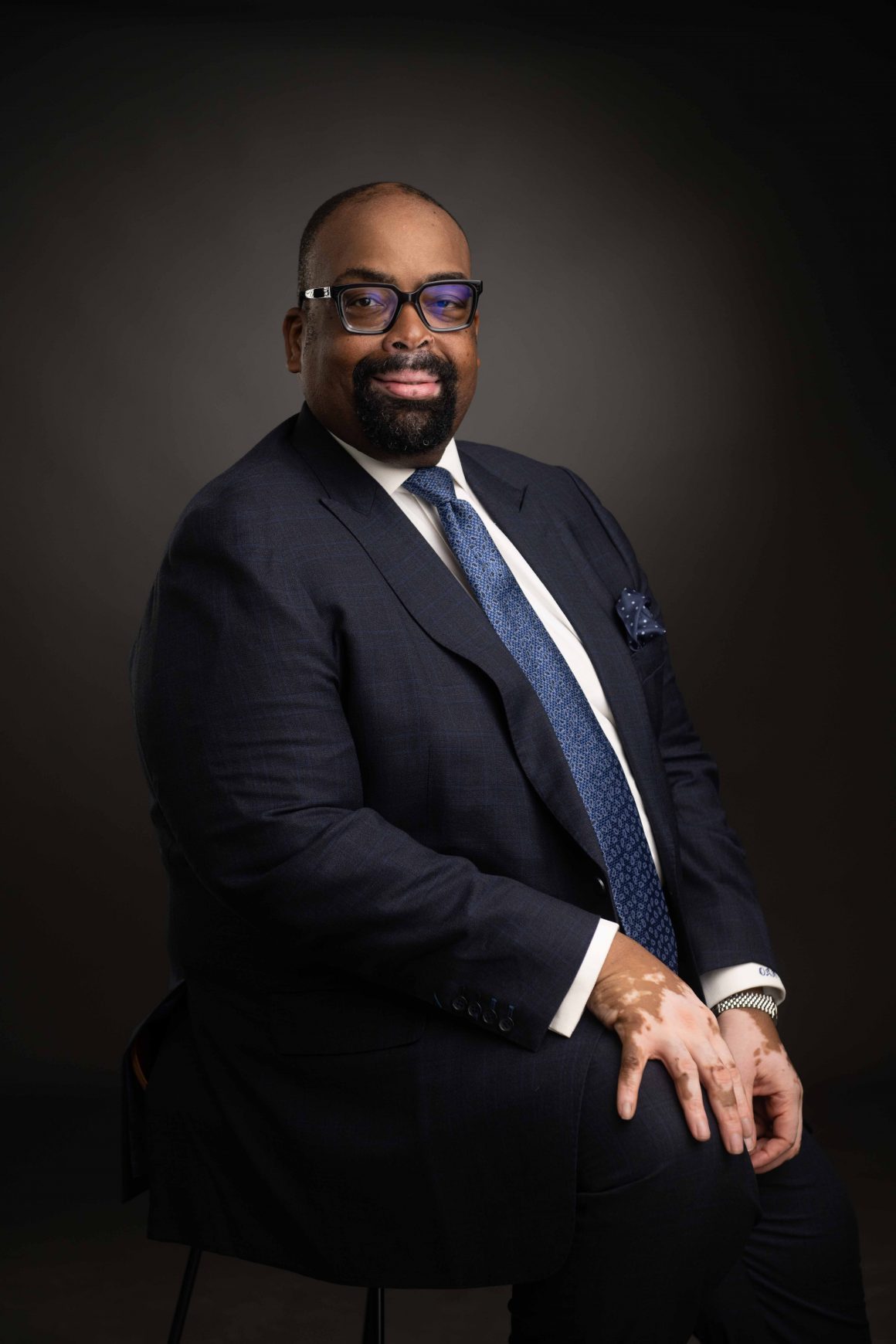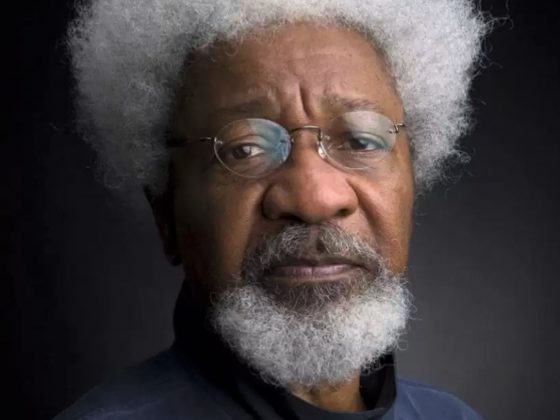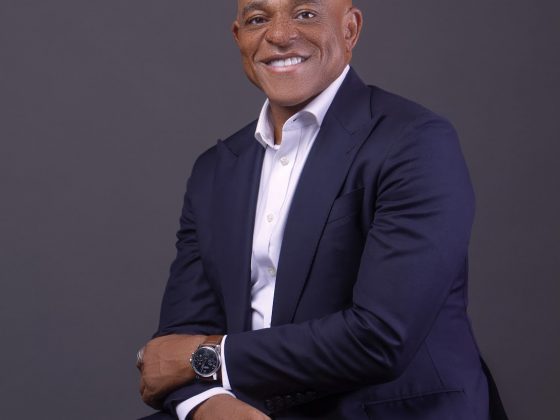Olumide Akpata, a distinguished lawyer with two decades of experience, is stepping into the political arena as a governorship aspirant for Edo State under the Labour Party. Formerly the President of the Nigerian Bar Association and managing partner at the renowned law firm Templars, he brings a wealth of knowledge and expertise to his candidacy. His deep commitment to good governance and the welfare of Edo State’s people also makes him a standout candidate for Governor.
Olumide’s impressive track record showcases his leadership prowess and dedication to social justice and inclusivity. He has consistently worked towards improving his community, demonstrating a steadfast commitment to progress and development. And he says his vision for Edo State encompasses economic prosperity, enhanced infrastructure, and expanded social services for all stakeholders.
In this interview with Funke Babs-Kufeji, Olumide reaffirms his dedication to public service and shares his vision for leading Edo State towards a prosperous and sustainable future.
Why did you choose the Labour Party platform to run for Governor of Edo state? What does the party stand for that you align with?
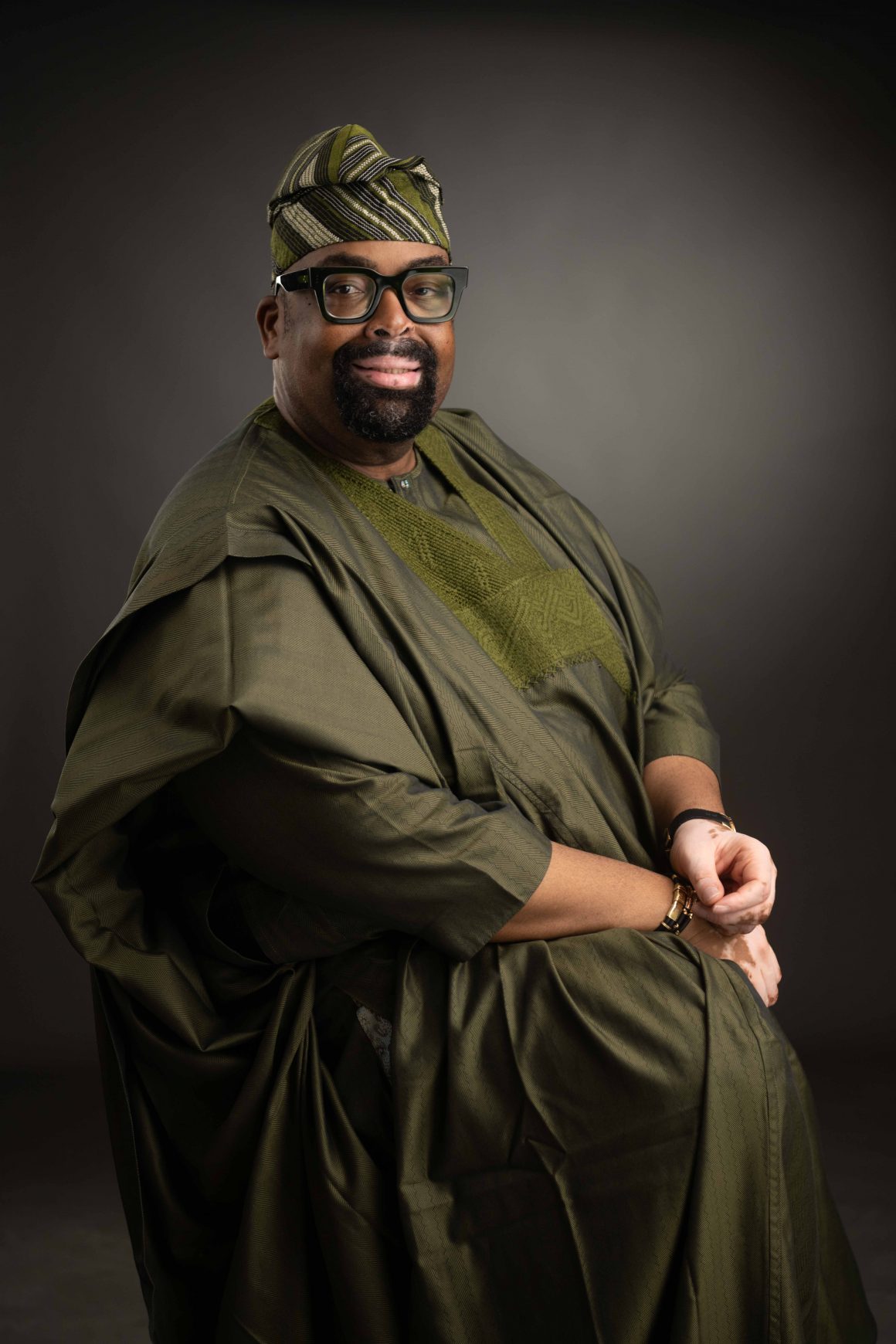
I chose the Labour Party after a great deal of careful consideration and introspection. In Nigeria, as you’re well aware, we don’t yet have the option of independent candidacy, so one must align with a political platform to actualise one’s vision for public service. I thoroughly analysed all available parties, scrutinising their ideologies, track records, and potential for genuine change. Ultimately, I found that the Labour Party of Nigeria most closely aligns with my aspiration to put people at the heart of governance.
The party’s logo, depicting a father, mother, and child—or, as we say, colloquially, “Papa, Mama, Pikin”—resonates deeply with my vision for inclusive leadership focused on people-centric and people-impacting programs. This symbolism also reflects a commitment to family values and the welfare of every stratum of society, from the most vulnerable to the most privileged.
In choosing the Labour Party, I’m also making a statement about the kind of politics I believe in – one rooted in the commoner’s aspirations, focused on tangible improvements in people’s lives, and committed to transparent, accountable governance. It’s a platform that allows me to pursue my vision of a more equitable, prosperous Edo State without being encumbered by the baggage that some more established parties might carry.
Why should the people of Edo state elect you as the next Governor? What are you bringing to the table if elected, and what edge do you believe you have over other candidates?
The people of Edo State should elect me as their next Governor because I bring a unique blend of experience, expertise, and vision that is particularly suited to our state’s challenges and opportunities. My background as a lawyer of over 30 years and former President of the Nigerian Bar Association has equipped me with a deep understanding of governance, policy-making, and the intricate workings of the public and private sectors.
What I’m bringing to the table is a fresh perspective, untainted by the traditional political machinations that have often hindered progress in our state. My experience in corporate law has given me invaluable insights into what it takes to create an enabling environment for businesses to thrive. I understand the legal and regulatory frameworks needed to attract both domestic and foreign investments, which will be crucial in driving economic growth and job creation in Edo State.
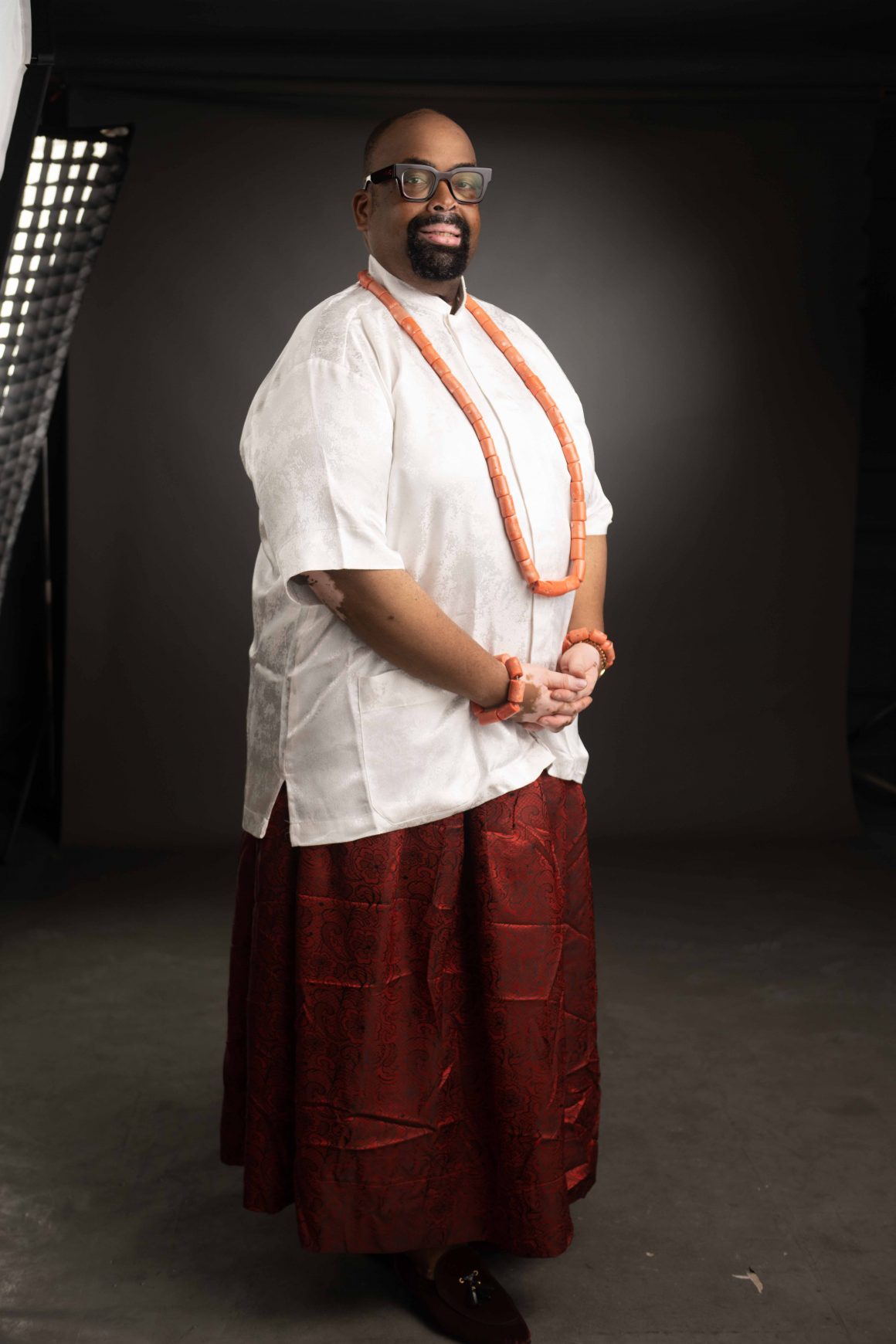
Moreover, my tenure as NBA President demonstrated my ability to lead a diverse, sometimes fractious organisation, implement reforms, and advocate for justice and the rule of law. These skills are directly transferable to governance, where building consensus, managing diverse interests, and pushing through necessary reforms are paramount.
Furthermore, I have a deep-rooted connection to Edo State and a nuanced understanding of its challenges and potential. I’m not just seeking office; I’m on a mission to transform our state, leveraging its rich cultural heritage, abundant natural resources, and the ingenuity of our people to create a model of good governance and sustainable development.
My edge over other candidates lies in my combination of professional expertise, leadership experience, and a fresh, progressive vision for our state. I’m not burdened by political debts or entrenched in old ways of doing things. Instead, I offer a clean slate and a genuine commitment to putting the interests of the Edo people first.
Do you believe in pro-poor policy? What will your pro-poor policy be? What specific plans do you have in mind to take the generality of the Edo people out of poverty? What will you do differently to improve the welfare of the economically disadvantaged?
I wholeheartedly believe in pro-poor policies, as they are essential for creating a more equitable society and driving inclusive growth. My administration will strongly emphasise uplifting the economically disadvantaged and creating opportunities for all Edolites to prosper.
Our pro-poor policy will be multifaceted, addressing various aspects of poverty and its root causes. Education will be a cornerstone of our pro-poor strategy. We’ll significantly increase funding for public schools, focusing on improving infrastructure, providing learning materials, and enhancing the quality of teaching. We’ll also expand adult literacy programmes and vocational training to ensure that even those who missed out on formal education have the opportunity to acquire valuable skills.
We will prioritise job creation through various initiatives. This will include investments in labour-intensive sectors such as agriculture and manufacturing. We will provide support for small and medium enterprises (SMEs) through access to credit, business development services, and favourable policies. We will focus on rural development to address the urban-rural divide. This will involve improving rural infrastructure, particularly roads, electricity, and water supply. We’ll also promote agribusiness and rural industrialisation to create economic opportunities in rural areas and stem urban migration.
What we will do differently is to ensure that these pro-poor policies are not just well-intentioned plans but are effectively implemented and reach those who need them most. We’ll set up robust monitoring and evaluation systems to track the impact of our interventions and make necessary adjustments.
We’ll also adopt a participatory approach, involving communities in designing and implementing poverty reduction programmes. This will ensure that our interventions are culturally appropriate and address the real needs of the poor.
Education in the country is taking a nose dive, and there has been very little impact over the years. Public schools are not well equipped, and most parents, particularly from the upper middle class, still prefer to place their children in private schools. If you are elected as Governor, how do you intend to change the narrative in Edo state?
The state of education in our country, and indeed in Edo State, is a matter of grave concern that requires urgent and comprehensive attention. You’re absolutely right that there has been a significant decline in the quality of public education, leading to a situation where those who can afford it opt for private schools. This trend not only exacerbates social inequality but also undermines the very foundation of our society, and it is particularly painful for someone like me who is wholly Nigerian-educated. I had my secondary and tertiary education in government-owned institutions. I make bold to say that I can stand shoulder to shoulder with my peers from anywhere in the world because of the quality of education I received here in Nigeria. We owe it as a duty to the next generation to make sure they can get the same kind of education we got, if not better.
As Governor, I plan to transform education in Edo State through:
-Increasing the education budget to meet or exceed UNESCO’s 26% recommendation.
-Overhauling public school infrastructure, including renovations and new construction, if necessary
-Investing in teacher training and welfare, implementing professional development programs and improving remuneration.
-Updating the curriculum to focus on STEM, critical thinking, and entrepreneurship while strengthening vocational education.
The goal is to make public education the first choice for all parents, regardless of social class. This transformation will take time, but with consistent effort, we aim to improve education in Edo State significantly. By investing in education, we’re investing in the future of our state and country, creating a foundation for economic growth, social progress, and good governance.
You were once the President of the Nigerian Bar Association (NBA), which is tasked with protecting and promoting human rights. If you are elected Governor, what is your long-term plan to curb human rights violations in Edo state?
As a former President of the Nigerian Bar Association and a lifelong advocate for human rights, I am deeply committed to ensuring that the rights of every Edo citizen, and indeed every Nigerian, are protected and promoted. As Governor, I will implement a comprehensive, long-term strategy to curb human rights violations in our state and set a new standard for human rights protection in Nigeria.
Firstly, we will address the unfinished business of the ENDSARS protests. The panel set up by the Edo State Government in the wake of these protests produced a report that has yet to be fully implemented. We will thoroughly review this report and implement its recommendations as a matter of urgency. This action will address specific grievances and demonstrate our commitment to accountability and justice.
Secondly, we will launch a comprehensive training programme for all law enforcement agencies in the state, focusing on the police force. This training will be multifaceted, covering various aspects of human rights, including the rights of suspects, proper arrest and detention procedures, and the absolute prohibition of torture and extrajudicial killings. To ensure the highest standards, we’ll partner with reputable human rights organisations and international bodies to design and deliver this training. The goal is to create a culture of respect for human rights within our law enforcement agencies.
Furthermore, we’ll institute regular human rights audits of all state institutions. These audits will serve as a proactive measure to identify and address potential areas of rights violations before they escalate. This approach shifts us from a reactive stance to a preventive one, allowing us to address systemic issues that may lead to human rights abuses.
Lastly, we’ll work towards domesticating all international human rights treaties that Nigeria has ratified. This process will involve a comprehensive review of our state laws to ensure full compliance with international human rights standards. By aligning our local laws with global best practices, we’ll create a robust legal framework for human rights protection.
You resigned from your Law firm, Templars, where you were a senior law Partner. Would you go back if you didn’t win the elections?
Yes, I resigned from my position as a Senior Partner at Templars. This decision wasn’t taken lightly, given my long association with the firm and its significant role in my professional life. This decision was driven by my commitment to public service and my desire to dedicate myself fully to the people of Edo State. My decision to run for Governor isn’t a mere political adventure but a genuine calling to serve my people. Edo State and Nigeria need transformative leadership, and I’ve stepped forward to offer myself for this crucial role.
What I can say with certainty is that regardless of the outcome of this election, my commitment to the development of Edo State and Nigeria as a whole remains unwavering. Whether as Governor, private citizen or in any other capacity, I will continue to work towards the betterment of our society.
It’s also worth noting that this campaign has given me invaluable insights into our state’s challenges and has further fueled my passion for public service. These experiences and the connections I’ve made with people across Edo State will inform my future endeavours, whatever form they may take.
Anyway, my energy and attention are fully directed towards this campaign and my vision for Edo State. If the electorate doesn’t choose me, although I am confident that they would, I’ll take time to reflect, consult, and make a decision that allows me to continue making a positive impact on our society.
How are you handling the political atmosphere with all the major contestants from all the other major parties?
Handling the political atmosphere with other major contestants is indeed a complex and delicate task, but I’m focusing on presenting my vision and concrete plans for Edo State. I believe that the electorate deserves a campaign based on ideas and solutions, not on empty rhetoric.
That said, I’m open to the realities of Nigerian politics. I’m well aware that some of my opponents may resort to less-savoury tactics. In such cases, my approach is to respond firmly but respectfully, always steering the conversation back to the issues that matter to the people of Edo State. I’m also placing a strong emphasis on grassroots engagement. By connecting directly with voters across the state, I stay grounded and focused on the real issues affecting our people rather than getting caught up in political gamesmanship.
As a Lawyer and a governorship candidate of Edo state, what is your view of the judgement passed by the Supreme Court granting the local government autonomy of government?
The recent Supreme Court judgement granting autonomy to local governments is indeed a landmark decision with far-reaching implications for governance in Nigeria. As a lawyer and a gubernatorial candidate, I view this development through multiple lenses.
From a legal perspective, this judgement is a significant affirmation of the principle of separation of powers and the federal structure enshrined in our constitution. It reinforces the status of local governments as distinct tiers of government rather than mere administrative units of the state government. This aligns with the spirit of the 1999 Constitution, which envisages local governments as vibrant centres of grassroots democracy and development.
I see this ruling as both an opportunity and a challenge. On one hand, it presents an opportunity to strengthen grassroots governance and bring development closer to the people. Local governments, being closest to the citizens, are often best placed to understand and respond to the immediate needs of their communities. Their autonomy could lead to more responsive and efficient service delivery.
On the other hand, this autonomy comes with increased responsibility. Many local governments in Nigeria, including some in Edo State, currently lack the capacity for effective self-governance. There are concerns about financial management, project execution, and accountability at the local level.
We would need to work closely with local government authorities to build their capacity for self-governance. This would involve training programmes for local government officials in areas such as public finance management, project planning and execution, and good governance practices.
We would need to create platforms for regular dialogue and coordination between the state and local governments. While respecting their autonomy, it’s crucial to ensure that local government plans align with broader state development goals.
We would also need to work towards strengthening local democratic processes. This could involve supporting efforts to conduct regular and credible local government elections and encouraging greater citizen participation in local governance.
I believe that the Supreme Court decision offers a unique opportunity to deepen our democracy and bring governance closer to the people. If implemented thoughtfully and with adequate support, local government autonomy could be a catalyst for rapid grassroots development in Edo State and Nigeria as a whole.
What do the people of Edo state stand to gain being that you were a former President of the NBA who has been highly influential in judicial decisions in the country?
The people of Edo State stand to gain significantly from my experience as a former president of the Nigerian Bar Association (NBA). This role has equipped me with unique insights, skills, and relationships that I believe will be invaluable in governing our state effectively.
My tenure as NBA President has given me a deep understanding of not just the Nigerian legal system but also Nigerian society and its intricacies. This knowledge will be crucial in navigating the complex legal and policy landscape of governance.
Secondly, as NBA President, I was at the forefront of judicial reform efforts. I understand the challenges facing our judiciary and have practical experience in implementing reforms to enhance the efficiency and integrity of the justice system. For Edo State, this means I can work towards creating a more efficient, transparent, and accessible justice system. This is crucial for maintaining law and order and creating an environment conducive to economic growth and investment.
Also, as NBA President, I gained significant experience in managing a large, diverse organisation with sometimes conflicting interests. This experience in consensus-building and strategic leadership will be crucial in managing the complex stakeholder landscape of Edo State.
You will recall that my tenure saw the NBA take strong stands on national issues, particularly in areas of human rights and good governance. I will bring this same courage and commitment to principle to the governance of Edo State, ensuring that we always stand up for what’s right, even when it’s difficult.
In essence, the people of Edo State will be getting a leader who combines a deep understanding of the law and governance with practical experience in managing a complex organisation, driving reforms, and advocating for the public interest.
You are a Lawyer, a human rights advocate and now a politician. Who is Olumide Akpata when he isn’t wearing any of the above hats?
When I’m not wearing the hats of a lawyer, human rights advocate, or politician, I am Olumide Akpata, an individual – with diverse interests and a deep commitment to personal growth and community engagement.
First and foremost, I’m a family man. Despite the demands of my professional life, I’ve always strived to maintain a strong connection with my loved ones. They are my anchor and my motivation, and I cherish the time I spend with them.
I’m also an avid reader with an insatiable curiosity about the world. My interests span a wide range of subjects, but more often than not, you will find me with a copy of a biography of a great person in hand. Travelling and exploring new places and destinations, listening to music, and dancing are also passions of mine.
I’m also committed to mentoring young people. This is not just a professional obligation but a personal passion. I derive great satisfaction from sharing my experiences and insights with the next generation, helping them navigate their career paths and personal development. These interactions also keep me grounded and in touch with the aspirations and challenges of our youth.
Community service is an integral part of who I am. Even in my personal capacity, I’m involved in various charitable initiatives, particularly those focused on education and healthcare. I believe strongly in the principle of giving back to society and try to lead by example in this regard.
Lastly, I’m a person who values personal relationships and human connections. Despite my public roles, I strive to maintain genuine friendships and connections with people from all walks of life.
You have debunked the rumour that you are Obaseki’s mole and have further stated that you do not agree with his style of government. What are your issues with it, and if you were in his shoes, given the current circumstances, what would you do differently?
To restate what I have always said: I am not Governor Obaseki’s mole, nor am I in agreement with his style of governance.
My decision to run for Governor stems from a genuine desire to bring about positive change in Edo State, informed by my own vision and principles. Now, to address the aspects of Governor Obaseki’s governance that I disagree with, there are several key areas of concern:
Firstly, I believe there has been a significant lack of inclusive governance coupled with a tendency to formulate high-falutin and high-sounding policies that are far removed from the people. While every administration has its preferred stakeholders, I’ve observed a tendency to alienate large segments of our society, including but not limited to traditional institutions, civil society organisations, and even some members of the Governor’s own party. This approach has created unnecessary tension and hindered the state’s progress.
Secondly, I have concerns about the approach to human capital development. While there have been some initiatives in this area, I believe they have been insufficient, given the scale of the challenge we face. Our youth unemployment rates remain alarmingly high, and we haven’t seen a comprehensive strategy to address this.
Thirdly, I disagree with the current administration’s approach to infrastructure development. While there are claims that some projects have been initiated, there seems to be a lack of a holistic, integrated approach that considers the long-term needs of our growing population and economy, and you can see the parlous state of our roads.
Any last word for the electorates of Edo states on why it is important for them to go out to vote in the coming election?
My last word to the electorate of Edo State on the importance of voting in the coming election is this: Your vote is your voice, and it is the most powerful tool you have to shape the future of our great state.
The coming election is not just about choosing a governor; it’s about deciding the direction of Edo State for the next four years and beyond. It’s about the kind of society we want to build for ourselves and for future generations.
I understand that there might be some level of voter apathy due to past disappointments. Some might feel that their vote doesn’t count or that all politicians are the same. However, I urge you to resist this line of thinking. Democracy thrives on participation, and the surest way to guarantee that your interests are not represented is by staying away from the polls.
Remember, bad politicians are elected by good people who don’t vote. By not voting, you’re essentially allowing others to make this crucial decision for you. You’re letting others decide the future of your children’s education, the quality of healthcare you’ll receive, the state of infrastructure in your community, and the economic opportunities available to you and your family.
On election day, I encourage you to go out early, vote peacefully, and stay to ensure your vote is counted.

